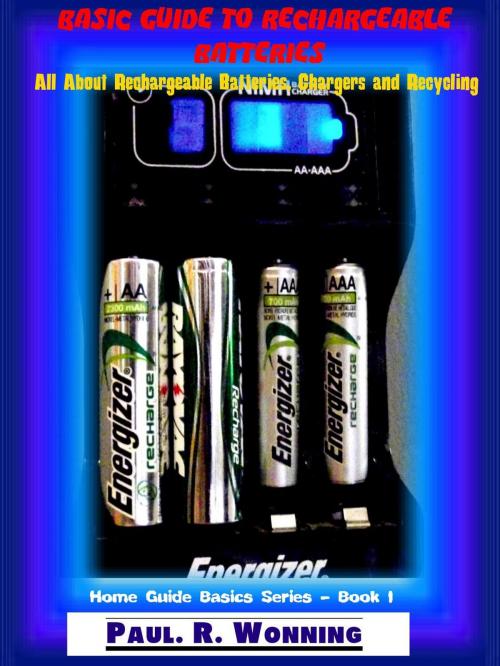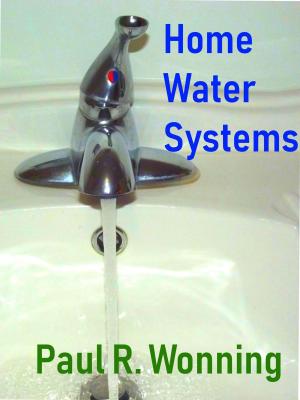Basic Guide to Rechargeable Batteries
Home Guide Basics Series, #1
Nonfiction, Home & Garden, The Home, Equipment, Appliances & Supplies| Author: | Paul R. Wonning | ISBN: | 9781519930583 |
| Publisher: | Mossy Feet Books | Publication: | October 21, 2015 |
| Imprint: | Language: | English |
| Author: | Paul R. Wonning |
| ISBN: | 9781519930583 |
| Publisher: | Mossy Feet Books |
| Publication: | October 21, 2015 |
| Imprint: | |
| Language: | English |
Rechargeable batteries have a number of advantages over conventional batteries that offset their higher initial cost. The materials used to manufacture them are less toxic; making is easier to recycle the batteries. A wide variety of battery chargers is available to recharge them, with one sure to suit every need.
Batteries have become a part of modern life. The number of products that rely on batteries for power is simply staggering. Everything from computers to phones to pacemakers has a battery as a power source. Many of these devices use batteries that are suitable for recharging. Recharging batteries makes both environmental and economic sense. By using rechargeable batteries there are fewer batteries going into the landfill. In addition, it makes economic sense to recharge batteries. Though the initial cost of a rechargeable battery is higher than a conventional battery, a rechargeable battery can take hundreds of recharges.
Battery chargers for these batteries come in all types and price ranges. Some are quite inexpensive, while others pack a much larger price tag. By the time you finish this basic battery guide, you should know what kind of battery is best for you, as well as the best charger to suit your needs.
The Home Guide Basics Series of books will explain the basic operation, options and systems of many appliances used in the home. The series will include books on rechargeable batteries, tankless water heaters, robotic vacuum cleaners, laminate floors, radiant heat, solar power, alternate energy sources, water filtration, solar garden equipment and more.
Rechargeable batteries have a number of advantages over conventional batteries that offset their higher initial cost. The materials used to manufacture them are less toxic; making is easier to recycle the batteries. A wide variety of battery chargers is available to recharge them, with one sure to suit every need.
Batteries have become a part of modern life. The number of products that rely on batteries for power is simply staggering. Everything from computers to phones to pacemakers has a battery as a power source. Many of these devices use batteries that are suitable for recharging. Recharging batteries makes both environmental and economic sense. By using rechargeable batteries there are fewer batteries going into the landfill. In addition, it makes economic sense to recharge batteries. Though the initial cost of a rechargeable battery is higher than a conventional battery, a rechargeable battery can take hundreds of recharges.
Battery chargers for these batteries come in all types and price ranges. Some are quite inexpensive, while others pack a much larger price tag. By the time you finish this basic battery guide, you should know what kind of battery is best for you, as well as the best charger to suit your needs.
The Home Guide Basics Series of books will explain the basic operation, options and systems of many appliances used in the home. The series will include books on rechargeable batteries, tankless water heaters, robotic vacuum cleaners, laminate floors, radiant heat, solar power, alternate energy sources, water filtration, solar garden equipment and more.















